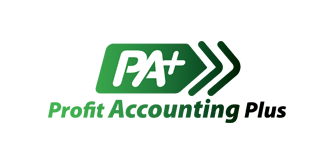Starting a new business is exciting and in today’s world, couldn’t be easier. But it’s just as easy to overlook the risks that come with it. Many small business owners fail to plan for critical risks that could lead to problems down the road. Future proof your business from the beginning.
Four Key Areas of Risk for Small Business Owners
In the process of preparing to open for business, you’ve registered your company with the ownership structure that best meets your needs, obtained licenses and permits to meet regulatory requirements, carefully signed contracts with suppliers, and hired your first employees. And by now you should also understand your competition, so by the time you launch your small business, you’ve likely thought through several of these risks.
But the moment you officially open for business, you also open yourself up to a host of additional risks that boil down to four key areas: financial, legal, staffing and property.
Financial Risks
The biggest financial risk is running out of cash before you can prove your success, so plan now to get ahead of the revenue growth curve.
As a small business owner, cash flow is at the heart of almost everything you do and think about. You need a solid financial plan that includes your fixed and variable costs as well as expected revenue and growth so you can forecast money coming in and out over the next months and years.
Further use your financial plan to assess any financing or fundraising needs to ensure you can cover your expenses until your business starts adequately generating recurring revenue. Consider all possible sources of capital, including bank loans, private investors and grants. Consider using your personal funds only as a last resort. Putting your personal finances on the line only adds more risk.
Legal Risks
Lawsuits are rather ubiquitous these days and they pose a serious risk to business owners. Not only can they be extremely costly, they can also damage your reputation. Remember the story of how one consumer sued McDonald’s for burning themselves with steaming hot coffee in 1994? It was very costly for McDonald’s, so much so other food services companies took notice and have explicitly labeled hot items ever since. Legal risks can crop up in unexpected ways, including copyright and IP infringements, defective products, black ice on your doorstep, and much more.
The best way to protect yourself from legal risks is to obtain business insurance. Business insurance comes in many different forms, so think about where your business is most vulnerable to lawsuits and secure coverage to protect those areas. For example, product liability may help in a claim like the hot coffee incident. And property liability can help protect you if someone gets injured after tripping over a cord on your work premises. Employer liability is usually required for businesses with employees.
A good place to start is a Business Owner’s Policy. This covers both business property, business liability, and business income. protecting you from property damage, theft, lawsuits and even loss of income if your business has to shut down temporarily due to a covered event.
Staffing and Employment Risks
The people who work for you are central to the success of your business. You can’t operate without employees, but you need to make sure you can trust them because staffing comes with two main risks:
- Employees can sue you if they feel you’ve infringed on their rights
- Employees can misrepresent your business
Once you bring people onboard provide them with a safe and comfortable working environment, meet payroll, provide workers’ compensation and (depending on your business’s size) basic health insurance. Neglecting any of these requirements may put your business at risk.
Also, make the effort to hire the right people. That means people who share your company values and who will take as much care of your business and your customers as you do. Equip your employees with the right tools and training, so they can perform and deliver. Hiring the wrong people or failing to properly train them can be detrimental to your customer service and product quality. And at its worst, it’ll open up grounds for customers to sue your business.
Property Risks
Aside from cash and people, your next biggest asset is your business property. This not only includes the physical location from which you operate, but also any vehicles, equipment and inventory you own. Protecting your business property against damage, destruction and theft is critical.
No one wants to think about catastrophic events that could put you out of business; but these things can and do happen. Failing to attend to these risks could set you up for a devastating loss – something your business may not be able to survive. Take inventory of your business property and put a contingency plan in place should any of it become unusable.
A major solution here is insurance. Commercial property insurance whether purchased separately or as part of a business owner’s policy that includes general liability insurance and may even cover lost business income if your business has to close after a fire or other disaster. There are many optional extras for this type of policy, so it’s wise to work with an experienced insurance agent at a reputable company to make sure you get the right coverage to suit your specific needs.
Plan For The Future
There is much to consider when setting up a new business. Thinking about the future and its potential challenges and risks helps you get ahead of them, laying a solid foundation from which to succeed. There are certain factors like market dynamics from which you can never protect yourself, so it’s wise to plan for those factors you can control.
